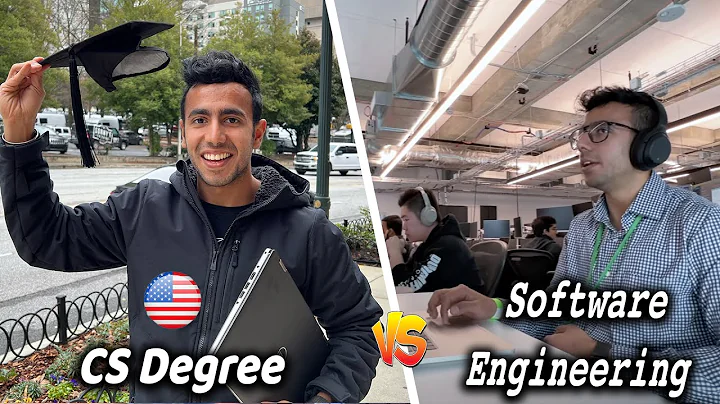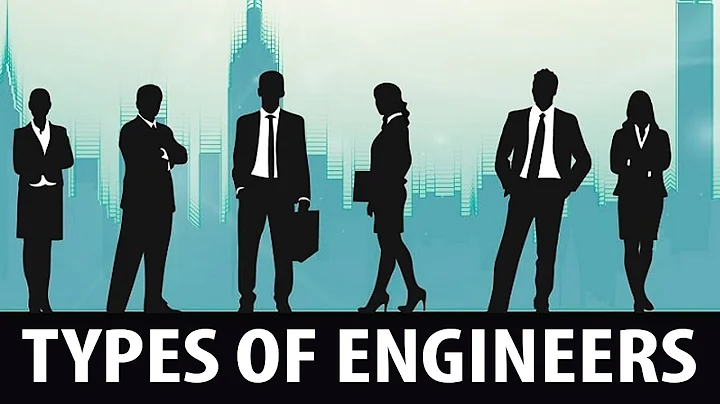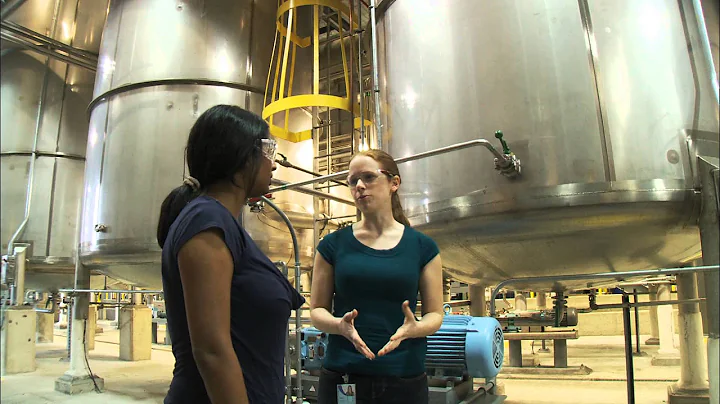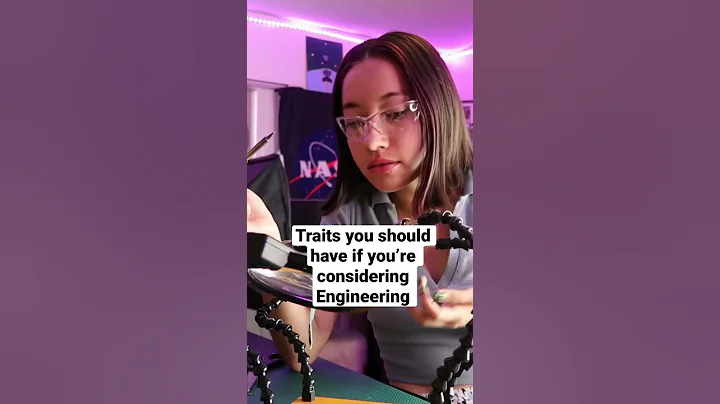We always talk about science and engineering, but we don’t know that science and engineering are two different categories. So, what are the specific differences between science and engineering? What are the employment destinations of science and engineering graduates? Let’s find out together today!

Science is a basic science. The quantity and quality of its original results determine the scientific level of a country, including mathematics, physics, chemistry, biological science, astronomy, atmospheric science, electronic information science and environmental science. The training goal is to engage in Senior professionals in scientific research, teaching, technology development and related management work.
Therefore, science is the life of Chinese science. Judging from the current development of higher education in my country, it is the consensus of more and more people to lay a solid foundation in undergraduate education. Comprehensive universities such as Peking University and Fudan University are schools that specialize in science.

Engineering includes the principles of applied mathematics, physics, chemistry, biology and other basic sciences, and is a discipline developed by combining the technical experience accumulated in production practice. Typical disciplines include civil engineering, highways and bridges, machinery, water conservancy, electrical engineering, and automobiles. , electronics and information, thermal and nuclear energy, materials, instrumentation, environmental engineering, chemicals and pharmaceuticals, aerospace, etc.
The training target is senior professionals engaged in design, manufacturing, technology development and management in related production and technology fields. For example, Tsinghua University, Xi'an Jiaotong University, Harbin Institute of Technology, etc. are schools that are good at engineering.
In summary: Science studies science, and engineering studies technology; science focuses on theoretical research, and engineering focuses on practical applications; science trains scientists, and engineering creates engineers; the field of science produces academicians, and the field of engineering produces academicians. Engineering Academician.
In this regard, students should distinguish and choose well according to their future development direction and personality characteristics. The difference between science and engineering determines that it is unscientific to confuse the two.

Science focuses on basic theoretical research; Engineering focuses on practical application and emphasizes the process of technological practice. Here is a rough comparison of each stage between the two:
1, high school stage
Generally speaking, in the first grade of high school, students will be asked to decide whether to study liberal arts or science. Generally speaking, a larger proportion of girls choose liberal arts. Those students who choose science are more likely to major in science and engineering in the future. However, many majors now include liberal arts and science.
2.
Science subjects at the university level are mainly about learning some basic theories. Students have relatively solid theoretical knowledge but lack in hands-on and practical aspects. Students are generally more calm and somewhat scholarly. Especially in some colleges and universities where liberal arts and sciences dominate (such as normal schools), there are obviously more girls than boys, and girls are generally more active than boys.
The main focus of engineering is the practical application of technology. Students have considerable hands-on ability and independent thinking ability, but students generally have personalities that are difficult to manage.
3. The most obvious difference between the postgraduate entrance exam
and the postgraduate entrance examination is that those in engineering majors must take the national unified mathematics examination, while those in science majors do not.
Note: Those who take the National Unified Mathematics Examination are not necessarily engineering majors. Generally, engineering majors test Mathematics I and Mathematics II. Mathematics III and Mathematics IV are generally management exams. But engineering majors must take math.
4. During the postgraduate and doctoral period,
postgraduate students are mainly engaged in the development of high technology or new products and must be based on practice, which is more difficult than those in science.
5. Work
Regarding the current employment situation, generally speaking, employment in engineering is better than that in science. A large number of engineering students enter companies to get higher annual salaries, while science students are mainly teachers, managers, and civil servants. Of course, civil service candidates are not divided into science and engineering.

Simply separating the development of engineering technology from science research actually ignores the huge role that science research results play in promoting the development of engineering technology.
In fact, every breakthrough in science research will have a profound impact on the development of technology. And in the field of modern science and technology, the relationship between "science" and "work" is getting closer and closer.
Mr. Li Zhengdao, the famous Nobel Prize winner , vividly compared basic disciplines, high technology and high-tech industries to water, fish and fish market in a report delivered by the Beijing Association for Science and Technology. If a country does not have basic disciplines, it will not have high technology and high-tech industries. Just like without water, there would be no fish and fish markets.
Interpretation of misunderstanding: Science does not equal pure theory
Some people confuse science with pure theory, thereby belittling the role and influence of science.
In fact, the research content of science involves three aspects:
The first is basic theoretical research;
The second is applied basic theoretical research (which has certain application prospects, or lays the foundation for application);
The third is applied research, which is purely Theoretical research is only part of it.
For example, many people seem to think that mathematics is a purely theoretical subject. When mathematics is mentioned, they think of the "Goldbach Conjecture" studied by Chen Jingrun . In fact, this is only a small aspect of mathematical research.
Take the School of Mathematical Sciences of Peking University as an example. The college has established five departments: Department of Mathematics, Department of Probability and Statistics, Department of Science and Engineering Computing, Department of Information Science, and Department of Financial Mathematics. After studying for 2 years, students can choose the direction of study in the above five departments according to their own wishes. Therefore, he has strong adaptability. After graduating from a bachelor's degree, he can engage in scientific research and teaching in various fields of mathematics, related interdisciplinary subjects (such as computer science, information science, finance and insurance industry, etc.) and high-tech departments, and can also work in practical departments. Engage in applied research, technology development or management.
Whether you are suitable for "science" or "engineering" is determined by your own characteristics.
The status of both science and engineering in my country's economic construction is very important. Due to the characteristics of the disciplines, the number of science majors and the number of students to train are smaller than those of engineering majors, but they require more excellence.
When choosing a university, you should pay attention to the foundation of the science major and the development trend of the engineering major to determine long-term development goals. In this way, there is actually no first choice or non-first choice between science and engineering. The key lies in your personality and thinking characteristics, which one is more suitable for you to choose.
For example, you have a solid foundation in mathematics and physics, strong abstract thinking ability, and like to ask "why" when things happen. You are not eager to make money after graduating from undergraduate degree, but continue to study at home or abroad, study for a master's degree or a doctorate, and are interested in becoming a person. If you are a scientist or professor, you may consider choosing science.
In addition, with a solid foundation in science, it is also very advantageous for students majoring in science to transfer to engineering studies at the graduate level, and they will be more recognized by society after graduation.
If the candidate has a good foundation in mathematics and physics, strong hands-on ability, likes engineering design, and aspires to become an engineer or technical expert in the fields of civil engineering, construction, water conservancy, machinery and other hardware construction, he or she will clearly define his or her job position at the undergraduate level. Then you can consider choosing engineering.

1. Destination for graduates of science majors:
(1) Graduates of mathematics majors are mainly suitable for engaging in theoretical research, applied research and development, and teaching in scientific research departments, colleges and universities, production departments, and management departments.
(2) Physics graduates can engage in basic or applied research and teaching in scientific research departments, schools, industrial and mining enterprises in natural sciences and engineering technology. You can also engage in technical development work related to physics.
(3) The destination of graduates majoring in chemistry may differ depending on the major. Mainly go to research units, schools and production departments to engage in scientific research, teaching and technology development work.
(4) Graduates majoring in biological sciences can be engaged in teaching, scientific research or other fields related to biology in teaching and scientific research departments, as well as in agriculture, forestry, fishery, animal husbandry, auxiliary, medicine, pharmacy and related enterprises and institutions. Learn related technical work.
(5)Graduates majoring in astronomy are suitable to engage in physics teaching at the observatories and stations affiliated with the Chinese Academy of Sciences, astronomy departments of schools and other various schools, as well as work in physics-related departments.
(6) Graduates majoring in geology are suitable for relevant research units in geology, seismology, metallurgy, petroleum, coal, building materials, chemical industry, hydropower, urban construction, nuclear energy, marine science, materials science, environmental science and industrial construction, etc. Colleges and universities and production departments are engaged in basic theoretical and applied research, teaching and practical production work.
(7) Geographic science graduates are suitable for basic work in geography, remote sensing, environmental protection, land, comprehensive examination, water conservancy, roads, ports, geology, earthquakes, urban construction, planning, surveying and mapping and other related research units, colleges and universities and production departments. Theoretical and applied research, teaching and technical work.
(8) Graduates majoring in geophysics are suitable for scientific research and teaching in various units of geophysical research and geological systems; they are also suitable for the research and application of energy and resource detection technologies and methods in geology, petroleum, coal and other departments. Work.
(9) Graduates majoring in atmospheric science can work in research units, schools and production departments related to meteorology, environmental protection, oceanography, agriculture, forestry, water conservancy, transportation, aerospace, communications, etc.
(10) Graduates majoring in marine science are suitable for engaging in scientific research, teaching and technical work in research and technical departments related to marine science.
(11)Graduates majoring in mechanics are suitable for engaging in scientific research, teaching and other practical work in mechanics.
(12) Graduates of electronic information science are suitable to engage in technology development and business operations in postal and telecommunications, electronics and other units, and can also engage in teaching and scientific research in universities and scientific research institutions.
2. Destinations for graduates from engineering majors
(1) Graduates majoring in geology and mining are mainly engaged in research, design and production management in enterprises, research institutes and design institutes in geological departments, relevant mining departments and engineering construction departments. They can also work in Engage in teaching in colleges and universities.
(2) Graduates majoring in materials are suitable to work in materials research, design and production units in metallurgy, chemical industry and other departments, or in other industrial, transportation and national defense departments to engage in science and technology related to the use of various materials. Development work.
(3) Graduates of mechanical majors mainly serve the research, design, and manufacturing of the machinery industry, as well as work in the mechanical design, manufacturing, and use departments of various industries.
(4) Graduates majoring in instrumentation, in addition to serving the research, design, and manufacturing departments of instruments and meters, also widely serve the scientific research and production departments of various industries, and are engaged in the use, maintenance, and improvement of related instruments and meters. Work.
(5) Graduates of electrical information engineering are suitable for engaging in scientific research, new technology development and application in electric power, electromechanical, railway and other departments, and can also engage in teaching in colleges and universities.
(6) Graduates majoring in electronic information engineering are suitable to engage in electronic equipment manufacturing, development and production management of electronic components and devices and raw materials in departments such as radio and television in the electronics industry. They can also work in related units in other departments.
(7) Communication engineering graduates are suitable for engaging in scientific research, technology development, operation and management in various postal and telecommunications bureaus and companies affiliated to the Ministry of Posts and Telecommunications. They can also engage in corresponding jobs in the military, railways, electric power and other departments.
(8) Graduates of computer science and technology are suitable to engage in software development, operation and maintenance in relevant departments of various systems or industries. They can also engage in teaching, scientific research and technical work in universities and scientific research institutions.
(9) Civil engineering graduates are suitable to engage in research, design, construction, management and operation in construction departments or railway, transportation, industrial and mining, national defense and real estate development companies, architectural design institutes, planning bureaus and other departments.
(10) The suitable destination for water conservancy graduates is to engage in research, design, construction and management in water conservancy planning and water conservancy engineering construction departments.You can also engage in corresponding work in construction, railway, transportation and other departments.
(11) Surveying and mapping graduates are suitable for engaging in surveying and mapping work in professional surveying and mapping departments, industrial and agricultural planning, urban planning, national defense construction, geology, meteorology, transportation, environmental protection, earthquake and other departments.
(12) Environment and safety graduates are suitable for environmental technology development companies to engage in research, management, and development and manufacturing of environmental engineering technology and equipment.
(13) Chemical engineering and pharmaceutical graduates are suitable to work in the production, design, scientific research and other departments of the chemical and pharmaceutical industries to engage in chemical and pharmaceutical engineering, process and product manufacturing, development and design.
(14) Graduates of light industry, textile and food industries are suitable to engage in scientific research, engineering process design, product development, quality control and production technology management in the light industry, weaving and food industry sectors. You can also work in the fashion design department.
(15) Graduates majoring in transportation are suitable to engage in research, design, production and management of various transportation and equipment and facilities in railways, highways, water transportation and other units.
(16) Graduates of agricultural engineering majors are suitable for agriculture, animal husbandry and fishery departments, agricultural machinery stations and township enterprises to engage in production management and the development, design, utilization and management of various engineering measures in modern agriculture.
(17) Graduates of forest engineering majors are suitable to work in enterprises, research institutes and design institutes in the forestry sector to engage in forest mining and transportation engineering design, wood production technology, nature reserve survey and planning, forestry machinery manufacturing, etc.





















